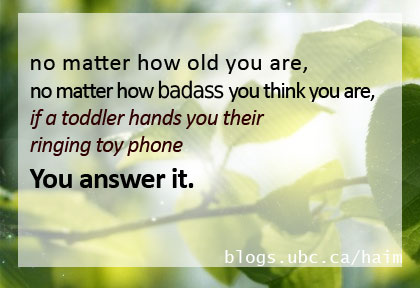Was to examine different aspects of Internet Marketing. Some of the techniques I used to get visitors were
- Submit content to social media websites such as
,
,
- Mentioning my blog in comments on other blogs
- Mentioning my blog to classmates
The techniques I DIDN’T use (but could have, if the class was longer)
- SEO
What worked?
Search engines and Facebook were the major driving force of traffic. StumbleUpon, the most traffic driving social network in the world, did not work for my blog. I regard this to the short period of time I gave it to operate considering the nature of this website.
In total, I had 352 visits in 6 weeks for an average of 58 people per week or just above 8 visits per day. Visitors spent 3 minuets and 52 seconds on average on my blog. I regard this to the easy to read, viral content I created in the beginning.
What I learned
- If you want to draw visitors through social media, use “light” content like jokes or riddles. Nobody wants to read walls of text.
- Pictures travel faster than words. I added a URL stamp to the images on this blog which resulted in some direct traffic. 9 visitors from the U.S typed in my blog URL directly, yet I did not tell anyone in the U.S. about this website.
- Long wordy posts are useful only for search engine traffic. Having more words on your blog means you become more relevant in various Google search terms. This is why I got visits from people searching for “Freelance writers from India”. As our instructor Prof. Paul Cubbon said : “If you’re going to write a long post, you better be world class interesting”. Sadly I don’t fall under that category.
I had fun editing the blog and reading others and the Pulse is still active. Overall satisfaction? 10/10





